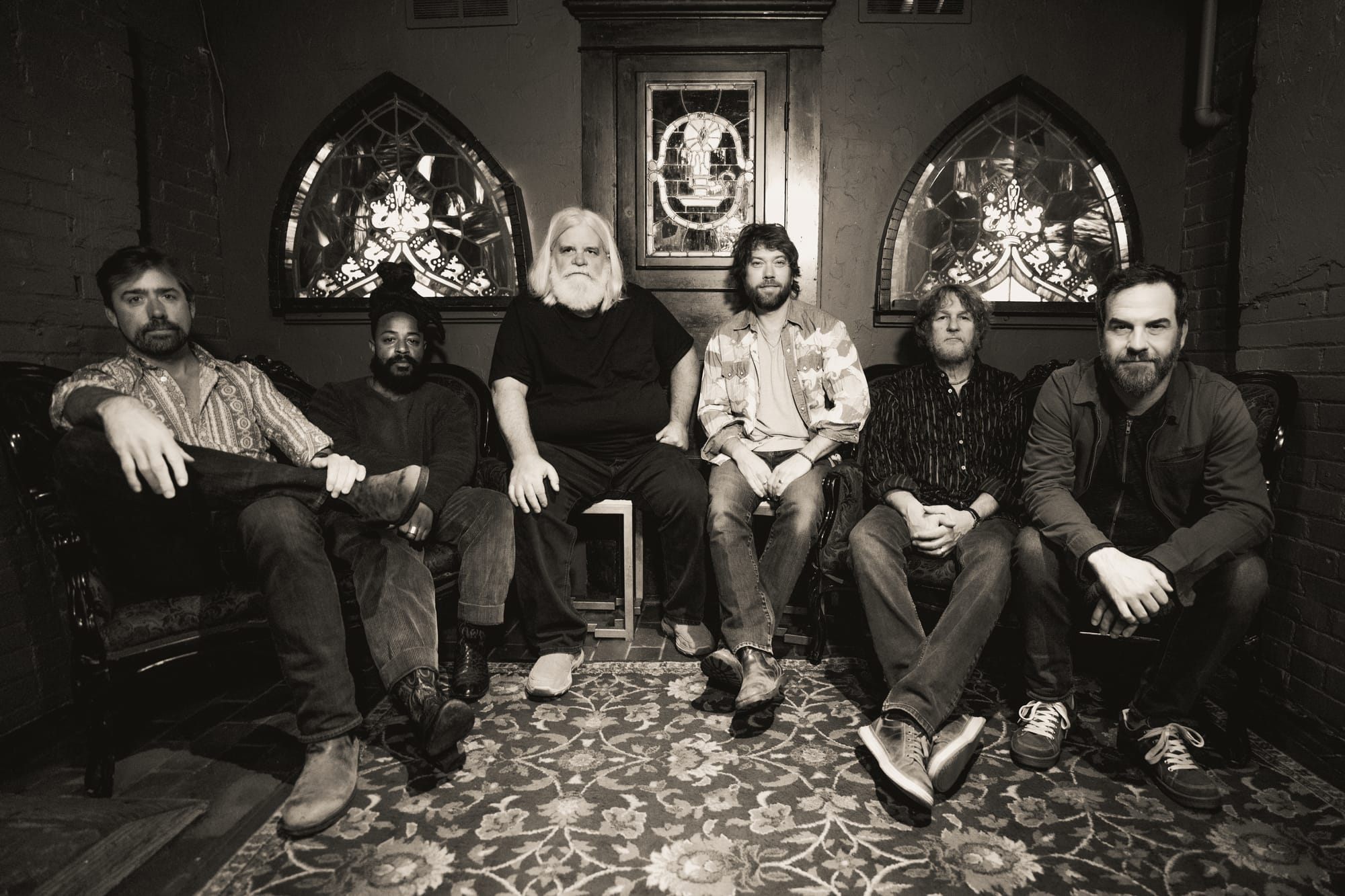By Frank Ricci
LEFTOVER SALMON is nothing short of a cornerstone of the jam band movement that blew up in the mid-90s when the Grateful Dead came to an end. The niche they originated is the hybrid style jamgrass.
More than a binary, the band defies genres, seamlessly blending bluegrass, rock, Cajun, Zydeco, Calypso, and country, a fusion they affectionately termed "Polyethnic Cajun Slamgrass."
The band started by accident. Guitarist Vince Herman of the Salmon Heads played a one-off New Year’s Eve show with mandolin plucker Drew Emmitt of the Left Hand String Band. It went so well they mashed it up and Leftover Salmon was born.
The timing was right, as the jam band scene was emerging, they hopped on the H.O.R.D.E. festival and toured relentlessly. It was a golden age in the genre, with bands like Blues Traveler, Dave Matthews Band, Widespread Panic, and jam Godfathers, Phish, dominating live music nationwide.
Herman and Emmitt remain the constants, but the current lineup is the longest-tenured the band has seen. The Savannah Music Festival welcomes Leftover Salmon to Victory North on Thursday, March 27.
The Savannahian spoke to founding member Drew Emmitt about the band’s history, the current state of the jam band scene, an unexpected Slayer parallel, and more.
What does “polyethnic Cajun slam grass” mean to you?
Vince came up with it at the beginning of our careers. It’s about the different styles we play. In the beginning, we were a little more Cajun and roots-oriented. Now, we are more original-oriented. It still describes what we do: some bluegrass, some Cajun, some Calypso, some Reggae, some Zydeco, and yeah, it's just a way of saying that we pretty much play whatever. We hold firmly in the category of “everything.”
Savannah Music Festival has always featured Cajun and Zydeco. It’s unusual in a jam band, so where did that influence come from?
Vince was heavily influenced by New Orleans when he was younger. He was going to New Orleans and checking out those kinds of bands that kind of music and so he kind of brings the Cajun Zydeco thing and the Calypso and all that. And I bring more of the bluegrass and the rock and roll and the originals. Although we both write.
Is the songwriting collaborative? Do you both contribute to songs or do you typically write them separately?
Historically, we have written separately until this last record we just finished. We all got in a room together and wrote together as a band for the first time. It's been kind of a new thing to all write together, and it went really well. It was awesome.
Would you be surprised that the heavy metal band Slayer similarly wrote separately at first and then later in their career did more collaborative songwriting?
That’s funny, Yeah. I mean it's just kind of an interesting thing with bands, you know. I think you evolve and become more collaborative as you go along.
Now that the new songs off the new record are done, you must be itching to play them live.
I'm excited to play them live because when you write brand new songs and put them on the record, they start to take on a life of their own, especially when you start performing the songs. I'm looking forward to seeing where these songs go and how these songs develop live. When you're in the studio, you try to be concise and fit everything into three or four minutes for a record. And then when you start playing them live, you can stretch them out and do different things and add solos and things like that. When you make an album, that's just the first step. And then these songs kind of take on a life of their own. It's going to be really fun.
Leftover Salmon was known for relentless touring for 20-plus years. What is the current tour situation?
We're always on tour, but we tour differently than we used to. We used to tour all the time and we've gotten to where we do a lot of long weekends. We just came back from Taos, New Mexico, we did two nights there. Then next weekend we're doing a show in Park City, Utah, and then we're coming back to Colorado for the WinterWonderGrass.
Then we have a chunk of time off and then we're heading to Birmingham and Owensboro, Kentucky and then we're coming down your way at the end of the month. We're going from there to Florida and then we're going to Hawaii in April for three shows. After 35 years, we've figured out a new way of doing this so we're not out on the road all the time, and it's pretty great.
I feel like we worked our butts off to get to this point where we can pick and choose, and be strategic and not be on a bus all the time. I'm very pleased with how things have developed.
The fruits of your labor.
At least it was for something.
Given your range of experience, how much have the crowds and the newer bands changed?
A large majority of our crowds are still younger. People are still discovering our band, and that's great to see. We've always been very fortunate to have great people coming to see us, great crowds, and I always say that is what's kept us going for 35 years, all these people traveling and coming out to see us and dig our music.
As far as the younger bands coming up, I see them doing what we did, working really hard and building a following. That's what it takes more than anything. It used to be back in the day, you made a record and that's what made things happen. Then you tour just for the record. But now, especially in the last five, ten twenty years, it’s the other way around. You tour and then you make records to support your touring. I see I see a lot of younger bands, you know, doing that same thing and getting out and working their butts off.
Is there a benefit of being forced to play live much more that results in better bands? It seems like the fans are more in control of the modern system than a handful of record company executives.
You learn so much when you get out on the road. You really hone your craft when you play these songs every night. I see that with younger bands. But the thing now is that there are so many bands. I mean, it's just crazy. The competition is fierce.
When we started, we were like the only one of the few bands that was doing what we were doing which was the electric bluegrass progressive kind of thing. We were inspired by bands that came before us, but that was at a time when the whole jam band thing was beginning. You know the Grateful Dead had ended and Phish and Widespread Panic were just getting going. So, we were at the forefront of a movement. Now it's very saturated. It's definitely harder.
What do the coming years hold for the band? You seem to be in a sweet spot. Do you plan to keep playing as long as the audience will have you?
I think so. Just keep making new records and new songs and try to get better all the time. Personally, that's my main goal is to try to keep getting better. Even after all this time, I have so much to learn. I keep trying.
Leftover Salmon plays Victory North as part of the Savannah Music Festival March 27 at 8 p.m. Get tix here.

